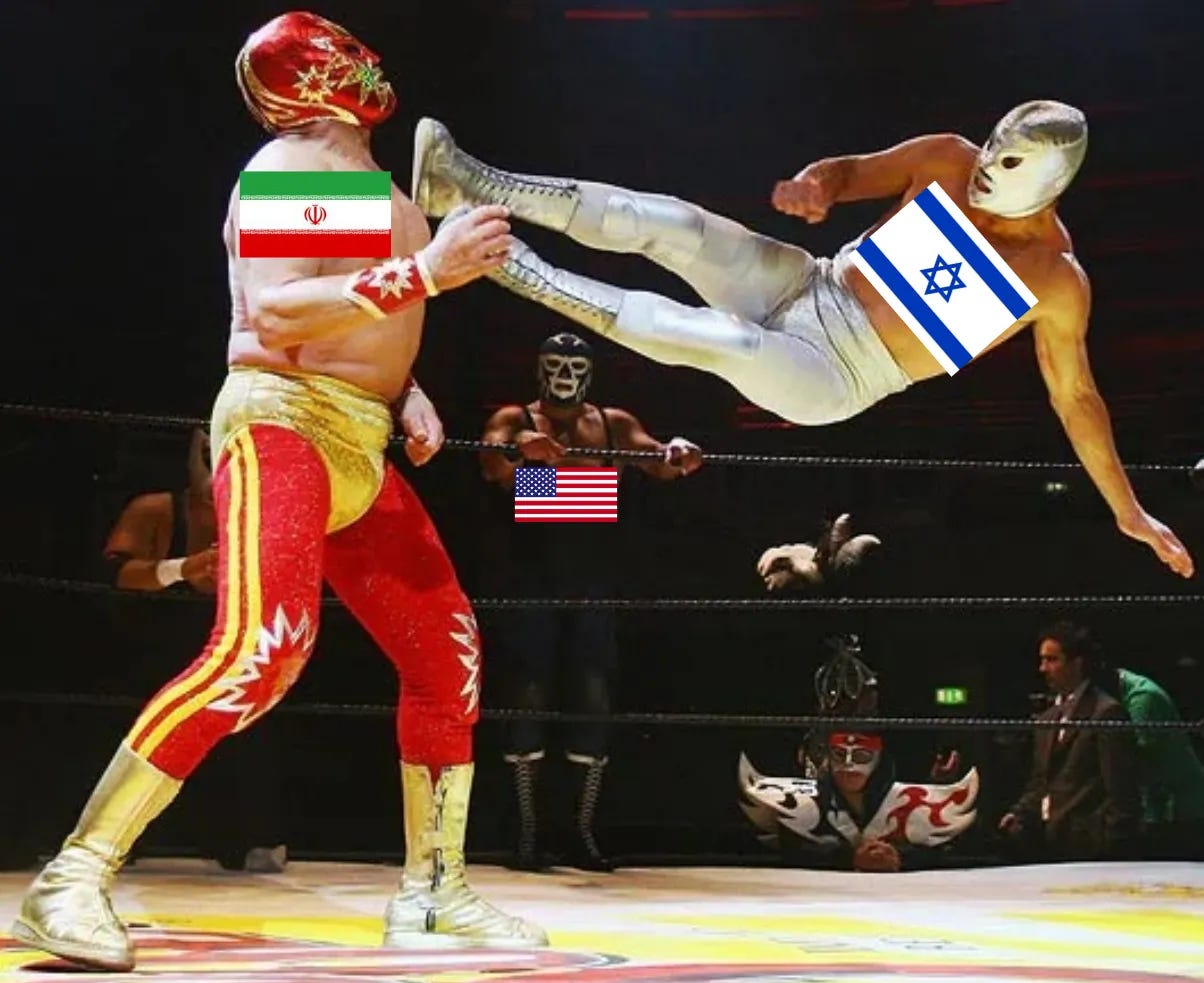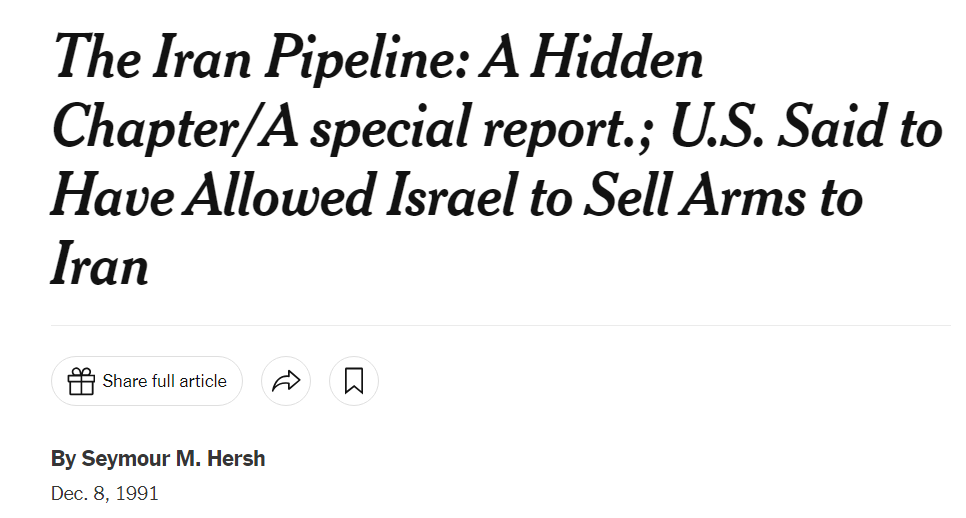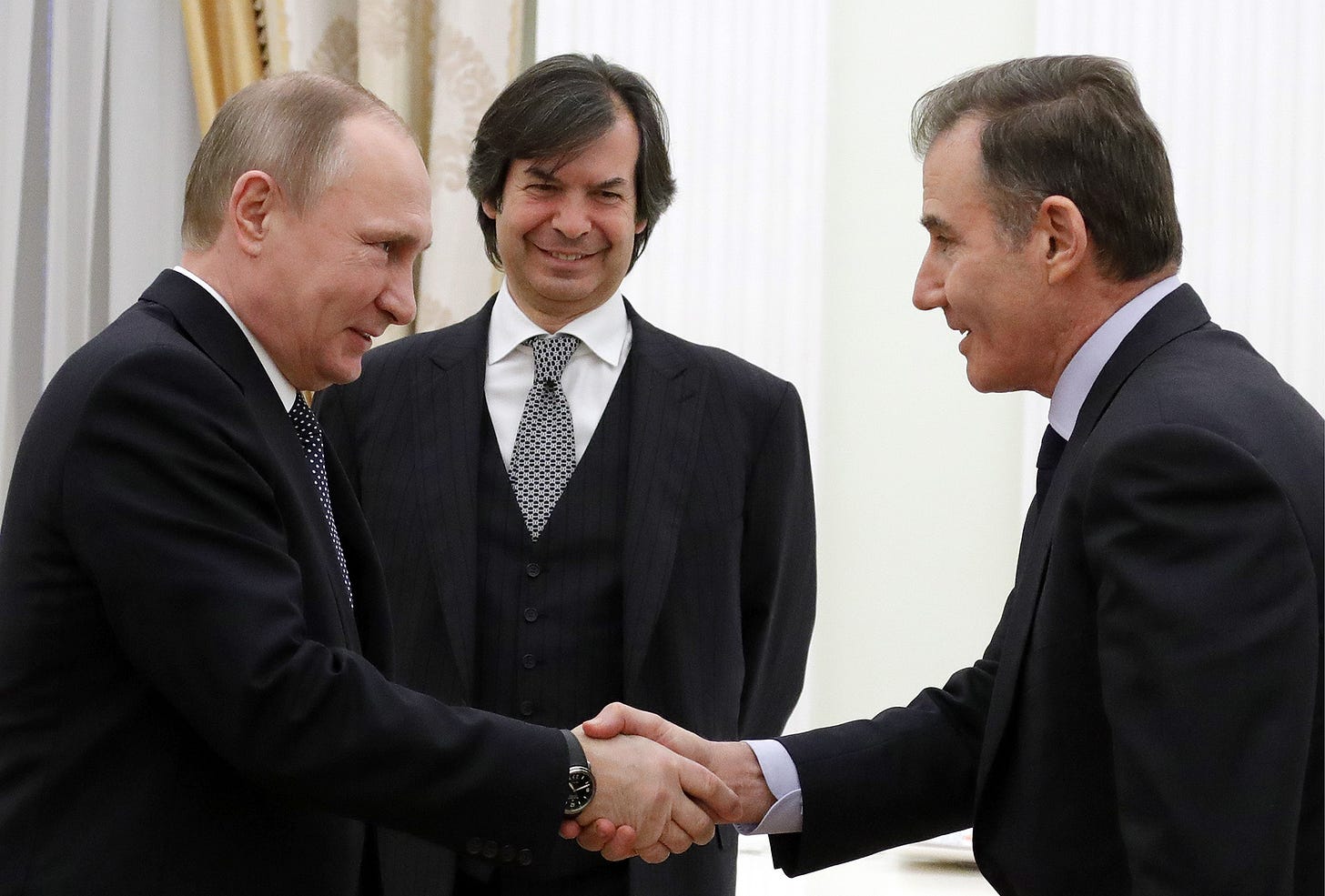The Coverup: The Israel-Iran Saga
Did Benjamin Netanyahu strike first to cover up the origins of Iran's nuclear enrichment program?
Despite the alarming headlines, I still don't believe Iran is on the verge of developing nuclear weapons, and I highly doubt Israel is in command of their nuclear arsenal. If Iran does eventually possess one, it may not be the result of homegrown efforts alone but rather the byproduct of geopolitical double-dealing involving countries like Israel and multinational corporations such as Rio Tinto and Glencore.

Iran’s Ties to Rio Tinto
Let’s start with a surprising fact: since 1975—four years before the Islamic Revolution—Iran has owned a 15% stake in the Rossing Uranium Mine in Namibia. This open-pit mine is majority-owned by Rio Tinto, an Anglo-Australian mining company. Despite international sanctions, Iran was allowed to retain its stake in Rossing as late as 2010.
Rio Tinto isn’t just involved in uranium. In 2013, it attempted to sell a major coal mine stake in Australia to Glencore and Sumitomo. A year later, Glencore made a move to merge with Rio Tinto—an offer the company ultimately rejected. Had the merger gone through, it would have created the largest mining company on the planet.
Rio Tinto also has a strong business relationship with Israel’s diamond sector. According to company executives and Israeli diamond industry leaders and actively sought to deepen its presence in the Ramat Gan diamond exchange.
Glencore and the Iran Nuclear Connection
In 2013, Glencore—then the world’s biggest commodities trader—was found to have supplied alumina to Iralco, an Iranian firm linked to the country's nuclear program. This arrangement sidestepped banking restrictions and highlighted how Tehran continued trading despite Western sanctions.
Ivan Glasenberg was CEO at the time of the sale but retired in 2021. He still remains the largest individual shareholder of the company. A Jewish South African, Glasenberg received the Order of Friendship from Russian President Vladimir Putin in 2017.
At the time, the multinational giant was partnered with the now-sanctioned Israeli billionaire, Dan Gertler, in mining ventures in the Democratic Republic of Congo.
Glencore, of course, was founded by Marc Rich, the infamous “King of Oil.” He was indicted in the U.S. for tax evasion, fraud, racketeering, and trading oil with Iran during the 1979 hostage crisis. Rich fled to Switzerland and lived as a fugitive for 17 years before being controversially pardoned by President Bill Clinton in 2001.

Rich made billions during apartheid-era South Africa by selling Iranian oil to embargoed regimes. He traded Iranian and Soviet oil to South Africa in return for Namibian uranium, some of which may have ended up back in Iran and Israel. Due to Rich’s excellent relationship with Ayatollah Khomeini, he helped give Mossad's agents contacts within the country.
In 1981, Marc Rich and Marvin Davis bought 20th Century Fox. Due to the indictment for violating U.S. trade sanctions, his holdings in 20th Century Fox were sold to Rupert Murdoch for $232 million in 1984. Interestingly, another figure tied to the studio was Israeli intelligence officer and film producer Arnon Milchan, who reportedly used his Hollywood career as cover while smuggling Krytron nuclear triggers out of the United States. In 1991, Milchan founded New Regency Productions, partnering first with Warner Bros., and later with Rupert Murdoch’s 20th Century Fox in 1997. Milchan eventually confirmed his role as a secret arms dealer for Israel, admitting he leveraged global connections to support South Africa’s apartheid regime in return for access to uranium that furthered Israel’s nuclear ambitions.
This raises a provocative question: Did Marc Rich’s operations extend beyond selling black market Iranian oil, possibly even to trafficking nuclear components to Iran?
The Israel-Iran Backchannel
Ironically, Israel—publicly an enemy of Iran—secretly sold American-made weapons to Tehran during the 1980s, with the full knowledge and support of the Reagan administration.

In 1981, Ronald Reagan took office with the help of Iran, which held American hostages until after the election to oust Jimmy Carter. Israel was greenlit to sell billions of dollars in U.S.-made arms and spare parts to Iran, and this backchannel remained active for over a year, even as the U.S. publicly launched "Operation Staunch" to halt global arms sales to Tehran. General Avraham Tamir, a top Israeli defense official, confirmed that U.S. Ambassador Samuel W. Lewis received monthly lists of weapons to be approved for sale to Iran. Meanwhile, Reagan’s team continued resupplying Israel’s stockpiles, fully aware these would be passed on. This kept Iran and Iraq locked in a prolonged war with the hope of weakening both.
The narrative that Iran is the lone villain crumbles when viewed through the lens of history and global trade. Western multinational companies and supposed allies—the very ones condemning Iran today—have long enabled and profited from its rise in nuclear and military capabilities. From uranium mines in Namibia to secret arms deals approved in Washington, the real story is one of hypocrisy and backroom deals.
If you have any tips, you know where to hit me up on X (@DCinTejas) or message me on Substack.
-DeAnna Calderón





